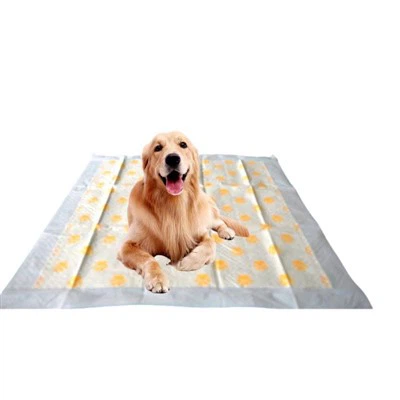Compared with disposable pet pee pads produced in other countries, those made in China have advantages in industrial cluster, cost, product innovation, etc. Details are as follows:
Industrial Cluster Advantage
China is the world's largest producer of disposable pet pee pads, accounting for 71.2% of the global market. Over 70% of the country's manufacturers are concentrated in three regions: the Bohai Rim Economic Zone, the Yangtze River Delta Economic Zone, and the Pearl River Delta Economic Zone. This has formed large-scale industrial clusters, which are conducive to raw material procurement and logistics distribution, improving production efficiency and reducing costs.
Cost Advantage
China's SAP (Super Absorbent Polymer) production capacity has been steadily increasing. Major suppliers include Satellite Chemical, Wanhua Chemical and other enterprises. This reduces reliance on imported SAP and lowers production costs. At the same time, China also has certain advantages in labor costs and land costs, making Chinese-made disposable pet pee pads highly competitive in price.

Product Innovation Advantage
Some leading enterprises in China have performed prominently in product innovation. For example, Tianjin Yiyi has successively developed and launched more than 1,000 types of exclusive and functional pet hygiene products to the market, including those with fixing stickers, anti-slip features, humidity indicators, quick-drying properties, bamboo charcoal, antibacterial functions, anti-bite resistance, deodorant additives, attractants, ultra-soft breathability, and anxiety relief. This has built a comprehensive application system for pet hygiene products.
Market Response Advantage
Chinese pet pee pad manufacturers usually have rapid market response capabilities. They can promptly adjust product strategies and production plans based on market demands and consumer feedback from different countries, launching products that meet the needs of various consumers.

Brand and Channel Advantage
Some Chinese pet pee pad enterprises have enhanced their market competitiveness by building independent brands and establishing diversified sales channels. For example, Tianjin Yiyi's independent brand HUSHPET adopts an omni-channel sales strategy integrating online and offline channels in China. Online, it covers major e-commerce platforms such as JD.com, Tmall, and Pinduoduo, and also sells through social e-commerce channels like Douyin and Xiaohongshu. It also cooperates with pet O2O service providers to achieve 30-minute instant delivery in some cities. Offline, it actively establishes cooperative networks with various venues such as pet brand operators, pet stores, pet hospitals, and hotels. Internationally, it mainly sells through agents and currently holds a certain market share in Southeast Asia and South America.










